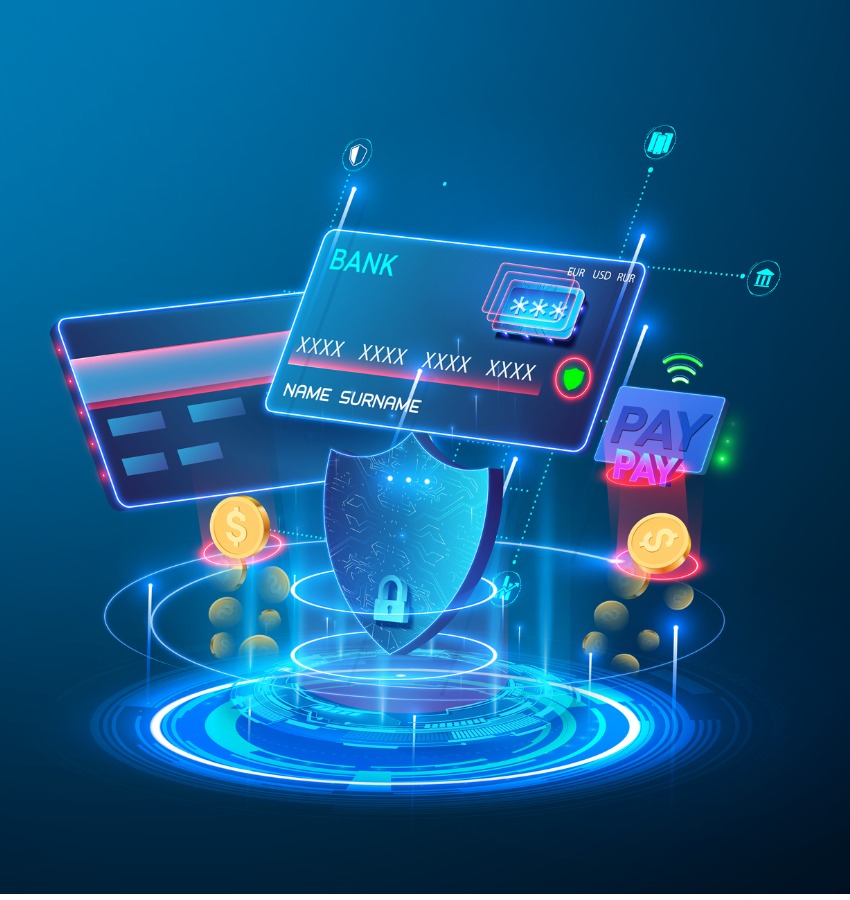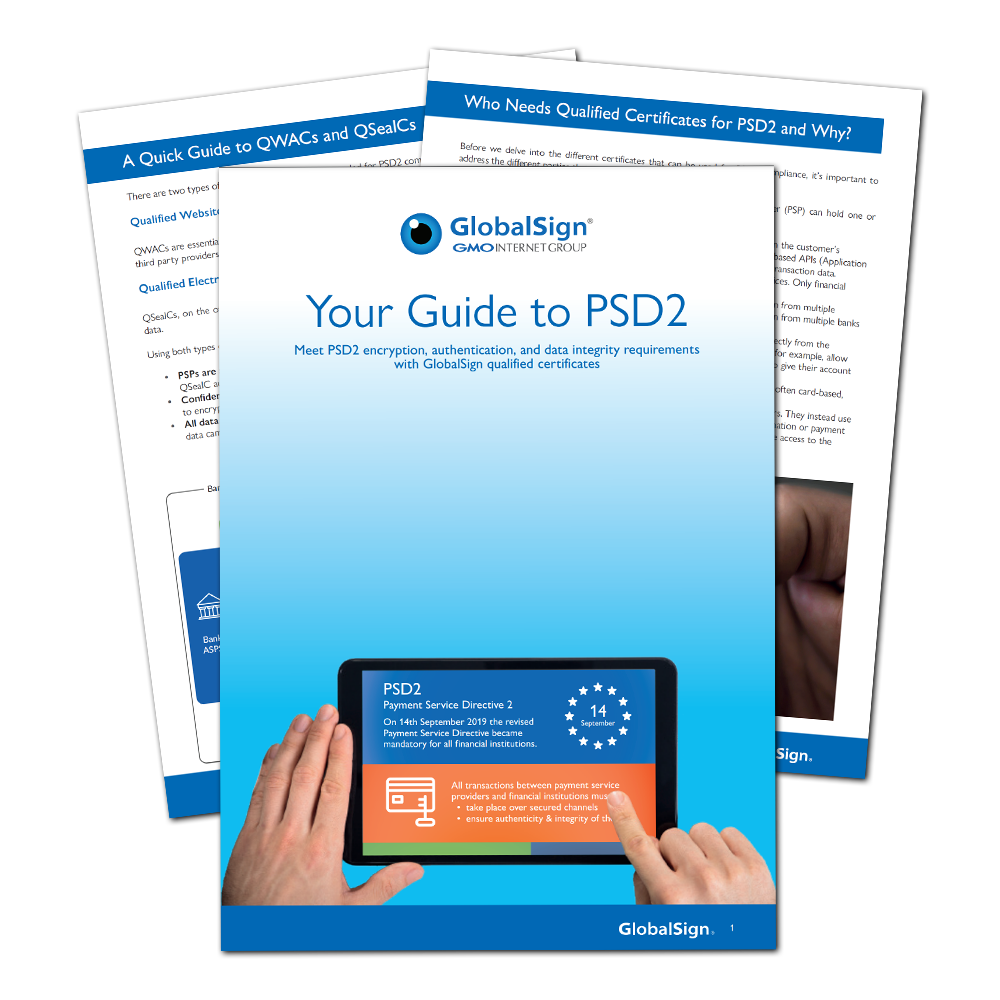What is PSD2 and What Does It Mean for Your Business?
Implemented by the European Union in 2015, the Payment Services Directive 2 (PSD2) lists specific security measures that financial institutions and third-party payment providers need to comply with under the law.
For PSD2, financial organizations and third-party providers are required to prove the origin, authenticity, and integrity of data entering their systems through the use of Qualified Web Authentication Certificates (QWACs) and Qualified Electronic Seals (QSealCs).








